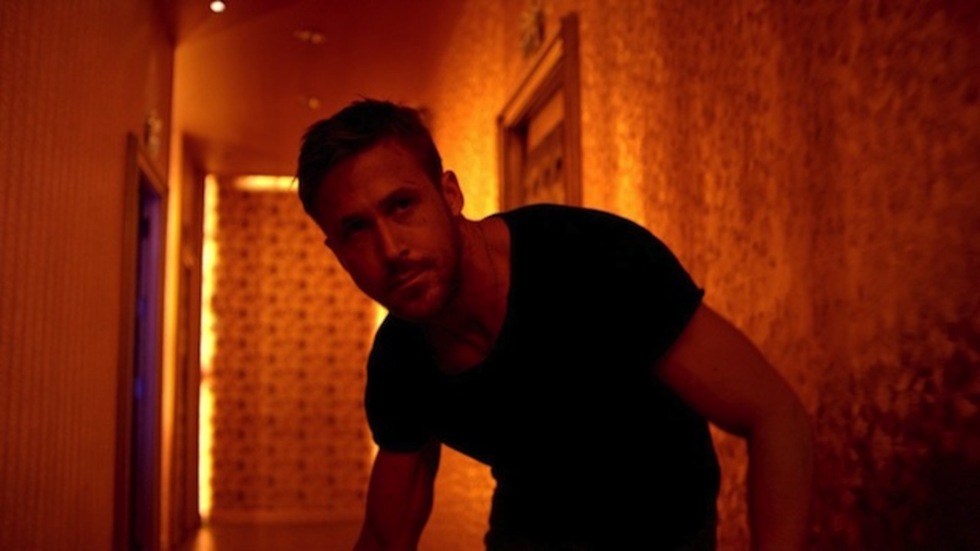
BY ZACHARY WIGON |
Interview: Nicholas Winding Refn On Personal Genre Cinema
Nicholas Winding Refn’s films are far more personal than the typical genre film – in fact, they may not be genre films at all.

There’s a long and illustrious history of genre filmmakers who’ve managed to transcend the typical limitations of their narratives. The icy, almost meditative coolness of Jean-Pierre Melville’s work comes to mind, as does the pointed characterizations and unusual visuals found in Michael Mann’s films. But no one is making thrillers today quite like Nicholas Winding Refn, who returns to theaters this week with Only God Forgives, his follow-up to his American breakout Drive.
Following a boxing gym owner (Ryan Gosling) in Bangkok who is out to avenge his brother’s death at the hands of the local police chief (Vithaya Pansringarm), Only God Forgives, on paper, could sound like a typical revenge picture. But due to Refn’s evocation of dream imagery and depiction of ambiguous states of reality, the film often bears the influence of David Lynch’s surrealism. Combine that with a pacing that is often meditative, and you have a wholly personal kind of filmmaking that is neither exclusive to the art house nor the grindhouse. Refn’s dedication to his completely unique style of storytelling has paid off in spades, and it’s a testament to the powerful results that can be achieved by hewing to one’s artistic vision, no matter how atypical it may be.
I sat down with Refn recently to talk about how he puts the idiosyncratic stamp of his personality on his work.
Tribeca Film: In interviews, you often refer to yourself as a fetish filmmaker, since you take images that are stuck in your mind and work to find ways to put them in your films. Can you tell me about that process?
Nicholas Winding Refn: It’s very practical. Once you see something that you would like to indulge in you just let it unfold, you find a practical way to create it. Sometimes it involves performers, and if it involves performers, of course you have to bring them into the same arena and then photograph them in a specific way, make it sound a specific way, until the image is your end result.
TF: Do the images you conceive of precede the film’s story?
I always come up with a certain amount of images and they create the story.

TF: What were some of those images for Only God Forgives?
Well the whole idea was a sense of a clenched fist, which is a very iconic image in a lot of fight movies; on one level it’s your masculinity, your aggression, but at the same time it’s an extension of your sexuality, so sex and violence in one gesture. But if you open your palm, it’s submission. I thought, I want to make a movie about that.
TF: I wonder how the process is different between when you’re working with a completely original script, like in this film, versus when you’re working with an adaptation of a novel that someone else wrote, like in your previous film. Is this process easier when you’re creating an original work?
Nope, because I just took what I liked from the novel and fetishized it into what I wanted it to be. They had been trying to make Drive for eight years. But when I came in, I said I want to make it as what I see it as.

TF: These fetishized images are obviously very personal as they are often the starting points for the work. The fact that they’re so personal, I think, is what makes your work transcend the genre that you’re working in. So when they’re so personal, I’m curious about how it works collaboratively, what that communication process is like with your DP, with [composer] Cliff Martinez, and with production design.
Well, as far as production design goes, the whole movie was shot on locations in Bangkok, so those locations were basically how they looked. I usually frame the shots myself. I’ve done that very much with the last three films, except for Valhalla Rising, because that was all handheld. For Bronson and Drive, I very much liked the compositions. And the cameraman does the lighting, which is my weakness, because I’m colorblind. I can see contrast colors, but I don’t know how to get there, except to turn on red and blue lights. For some collaborators you need to explain more to convey, and some people you don’t. Of course, music is a very emotional storyteller, so that becomes a very long process. And performers, performances are difficult because they need to reenact these images. If it’s the staring between Carey Mulligan and Ryan Gosling [in Drive], or Ryan staring at his fist. A lot of the performances are about trust.
TF: Gosling’s performance reminded me of Bresson’s work with his models, as he called his actors. I think there’s some sort of sub-psychological register that Gosling is going into to create these primal affects - at the risk of sounding too academic!
It’s a valid point. You see, most people only understand acting through dialogue, because most people watch television, which is such a dialogue heavy medium, but think about what ballet can do to people’s emotions. I mean, there are so many different ways to perform that are - in a way - more demanding of the craft of acting, besides just dialogue. And Ryan was born with this gift of conveying emotion without having to talk. He was born with the gift of cinema.
"The cameraman does the lighting, which is my weakness, because I’m colorblind. I can see contrast colors, but I don’t know how to get there, except to turn on red and blue lights."
TF: So walk me through that process a bit, where you’re going through the script with him, when you’re talking about the project with him, what level of work are you guys doing? Tell me a little about that process.
There’s a constant evolution. We talk a lot about trying to understand the symbols in the scenes, behind the scenes.
TF: So it’s about giving him the thematic background for what you’re after and letting him go from there.
Well it’s more like letting him interpret from there.

TF: I’m sure he adds a lot to it.
Of course. He’s very good at that. And we’re very good at being silent together. You know, we see a lot of each other - as far as actors go, I’ve seen him more on a personal level than anybody else that I’ve worked with. But we don’t really talk a lot, we just kind of hang out. Silence is very much part of our internal, mutual language.
TF: Is there a moment somewhere where you realized, this is an actor who really complements what I’m looking to do cinematically?
While working. It just kind of comes out. And it’s very intimate, because you’ve completely torn off all layers of yourself, and it’s pure nudity.
"But [Ryan and I] don’t really talk a lot, we just kind of hang out. Silence is very much part of our internal, mutual language."
TF: Right, and that’s something dialogue can’t do. Dialogue isn’t really a mode of portraying the character – I think, so often in real life, dialogue is really about building a wall around someone.
Yeah, and conveying information. It’s people conveying information about themselves or events that have happened or are about to happen. So viewers follow stories based on the information that our characters inform us. That’s usually how most movies are told, and that’s how most television shows are. And we’ve become accustomed to that. You could do an experiment one day. You could take a TV show and turn off the sound and see how much information you get. Or how little, which is usually the case. You just turn the sound back on so you can understand the basic story instead of characters walking in and out of doors. And film is also the same. But, what’s interesting is that if you can find a way to tell the story without the dialogue. So when you add the dialogue in, it enhances the dialogue’s importance, it gives it a much stronger resonance. It has a much pointier meaning to it.
TF: Because the audience isn’t taking it for granted.
Now they really have to pay attention. You’re not just giving information. You’re saying something that needs to be heard. It’s like going to a museum and watching a painting or a sculpture. And eventually, it will reveal itself to you.

